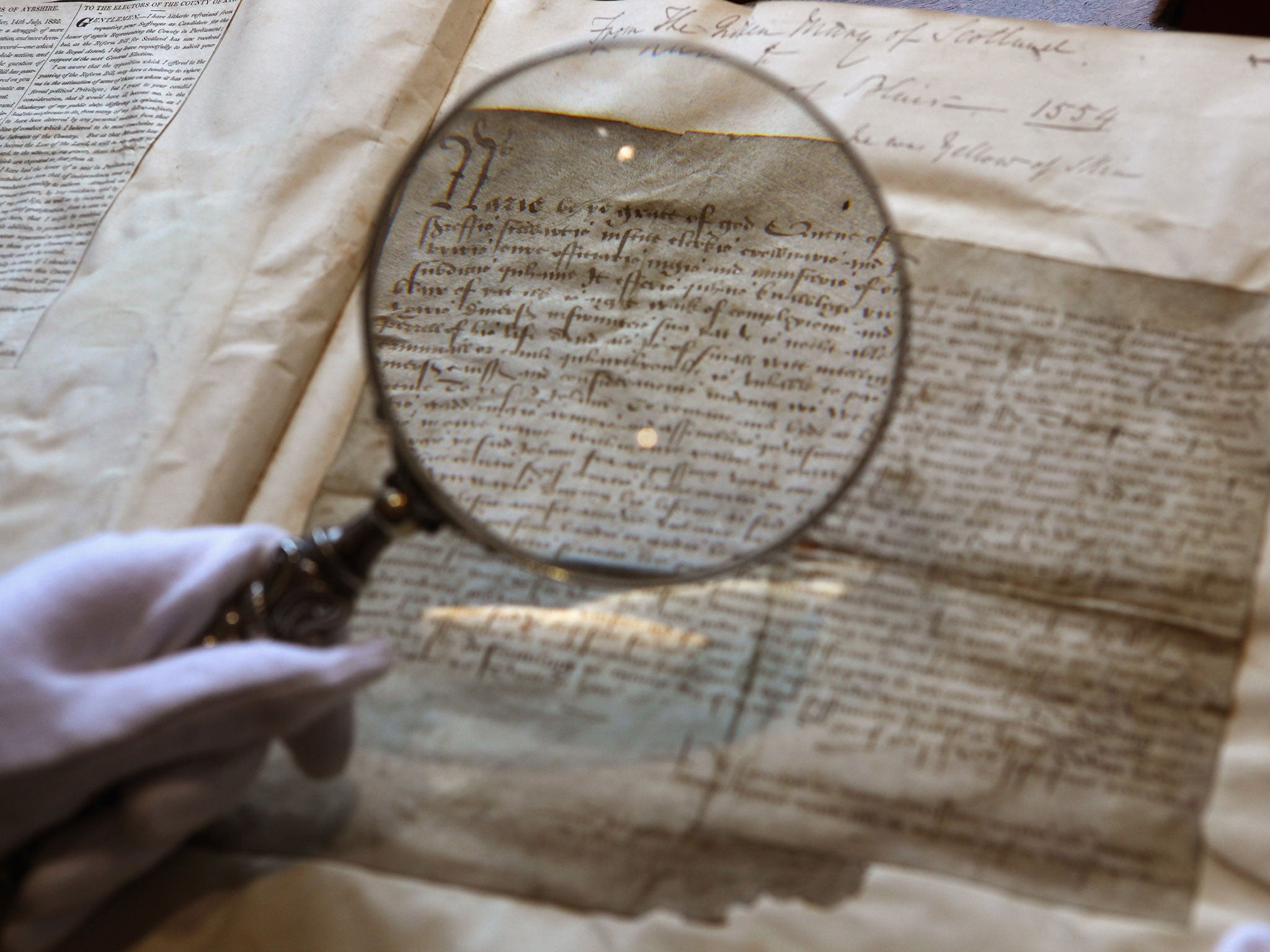Dear All, please carry on writing letters. Yours, the Professor: Launch of The Letters Page journal
Academics create journal to encourage people to keep record of loves and losses

Your support helps us to tell the story
From reproductive rights to climate change to Big Tech, The Independent is on the ground when the story is developing. Whether it's investigating the financials of Elon Musk's pro-Trump PAC or producing our latest documentary, 'The A Word', which shines a light on the American women fighting for reproductive rights, we know how important it is to parse out the facts from the messaging.
At such a critical moment in US history, we need reporters on the ground. Your donation allows us to keep sending journalists to speak to both sides of the story.
The Independent is trusted by Americans across the entire political spectrum. And unlike many other quality news outlets, we choose not to lock Americans out of our reporting and analysis with paywalls. We believe quality journalism should be available to everyone, paid for by those who can afford it.
Your support makes all the difference.The art of letter writing may be under daily assault from email and Twitter’s brutal abbreviations, but a new literary journal hopes to buck the trend by encouraging people to put pen to paper.
Academics at the University of Nottingham are to publish The Letters Page, a compendium of letters submitted by ordinary people that detail love, loss and the everyday trivia of daily life.
The journal – edited by Jon McGregor, who is the author of the critically acclaimed If Nobody Speaks of Remarkable Things and So Many Ways to Begin, and a professor of creative writing at the university – is just the latest contribution to the letter’s literary fightback.
Simon Garfield’s new book, To the Letter: A Journey Through a Vanishing World, published next month, traces the history of the letter from the Roman world onwards and delves into great correspondences, from Cicero and Petrarch to Jane Austen and Ted Hughes. A compilation of Shaun Usher’s Letters of Note website, which has won plaudits for collecting some of the world’s most moving, funny and inspiring correspondence, will also be released in book form.
“Letters are the oldest form of writing, and a key part of literary culture,” said Professor McGregor. “Through The Letters Page, I hope we can explore what letter writing means to writers and readers today. I’m very excited to be launching the first issue.”
The Letters Page took shape when Professor McGregor started a blog to explore themes for a new literary journal. He invited responses in the form of handwritten letters sent through the post – receiving missives from Canada and the US, Spain, France, Germany, Cyprus and the Republic of Ireland.
The best of the correspondence, published in the first journal, include letters sent home from abroad, letters from prison, letters of complaint as well as thanks and pleading. There are letters that carry news, expressions of love and a sense of time and place.
Professor McGregor said: “Most of the letters we received were legible, most of the letters had something interesting to say about letter writing; a select few stood out, I felt, as fine pieces of writing regardless of form.”
Submissions are now open for the second issue, loosely based around the theme of pen pals. But the editors admit that restricting the definition of a “letter” to a physical object is increasingly anachronistic.
With the Royal Mail reporting a 9 per cent annual slump in letter volumes, the journal will now accept letters regardless of form, including those generated digitally and sent by email.
Permanent news: pages of pleasure
A letter posted on the website by the Irish author Colum McCann:
Dear reader,
Knut Hamsun said that in old age we are like a batch of letters: “We are no longer in the passing, we have arrived.”
And yet it is in the arrival that we remain. What a joy to write a letter without any idea of where it will end up, a letter that is everywhere and nowhere at the same time – a piece of virtual intimacy.
You have no need to respond. Your response arrives in the act of reading. It’s such a pity that it will not fall gently through the letterbox. I love and have loved the art of letters, and yet I have forgotten it too.
When I was younger in Dublin, the postman was the closest thing I had to a metronome. The letterbox flapped and you could tell the weight of the news by the sound of it against the carpet.
Years later, when I went on a long cycling journey, I would pick up letters from “General Delivery” in Amarillo, Portland, San Francisco. What a wonderful feeling it was to walk into the post office in pure anonymity to find a letter waiting there.
Letters, when carried, they are a permanent news. I miss them.
Join our commenting forum
Join thought-provoking conversations, follow other Independent readers and see their replies
Comments